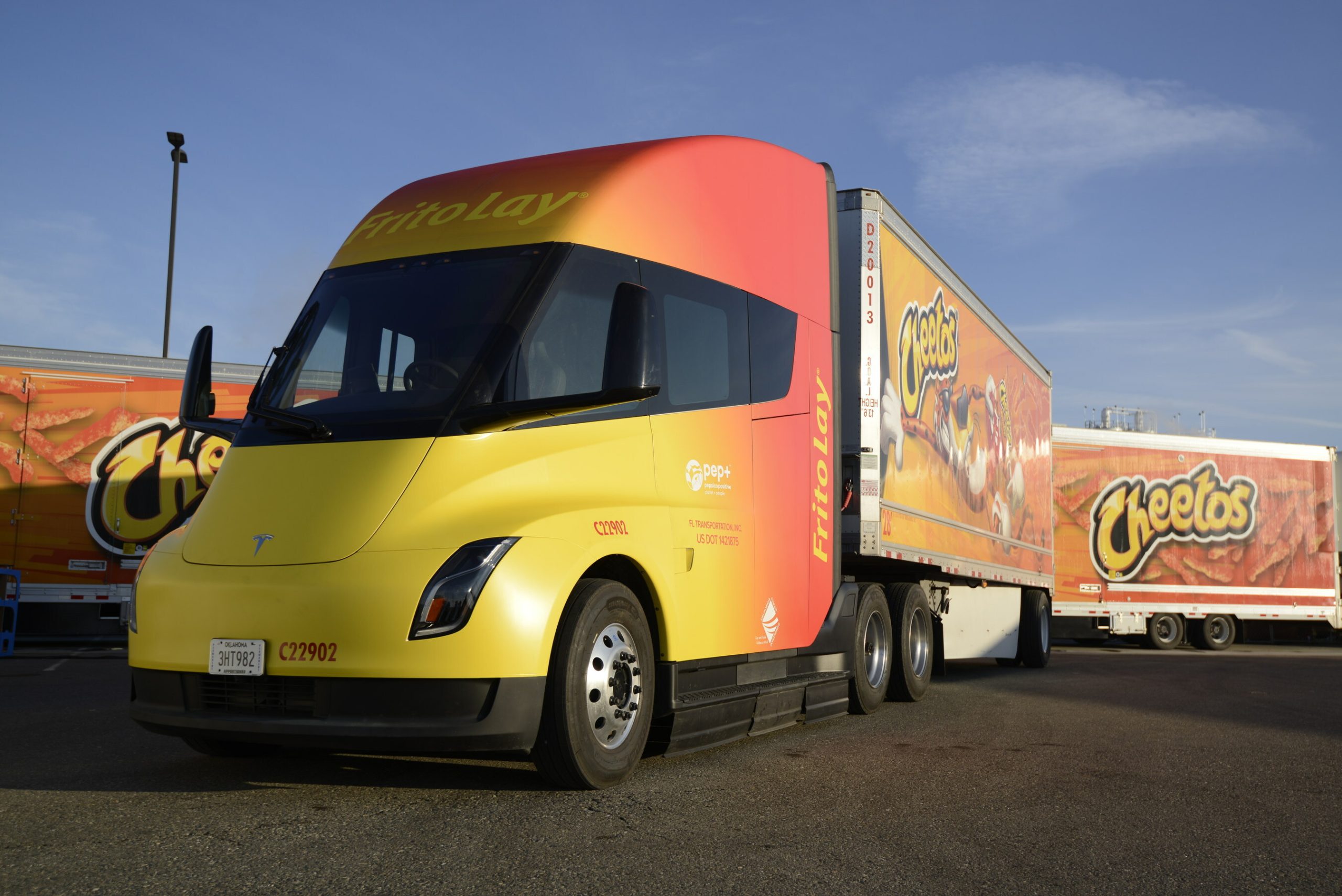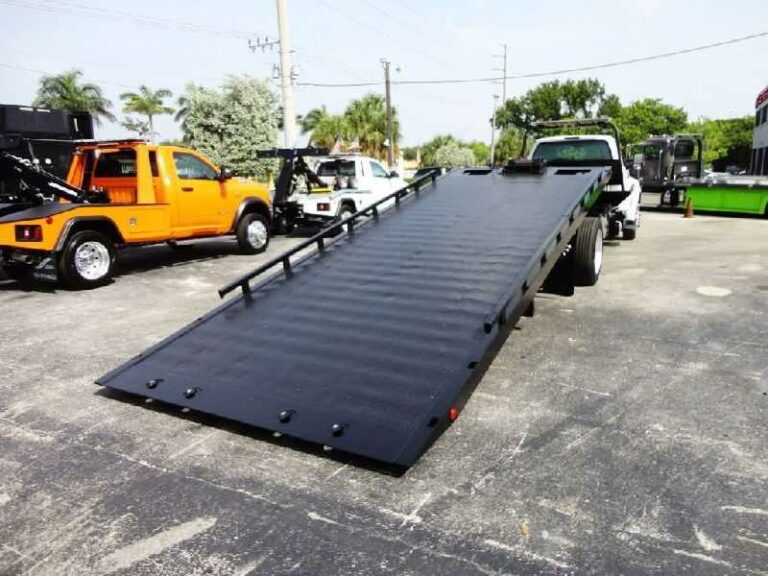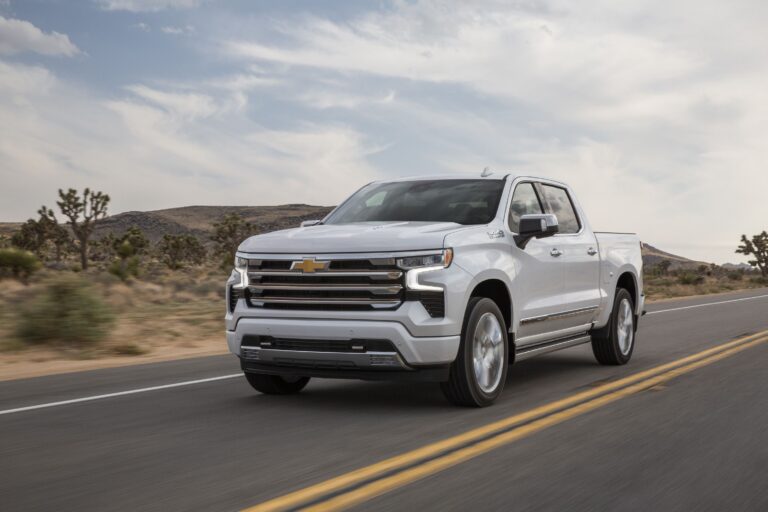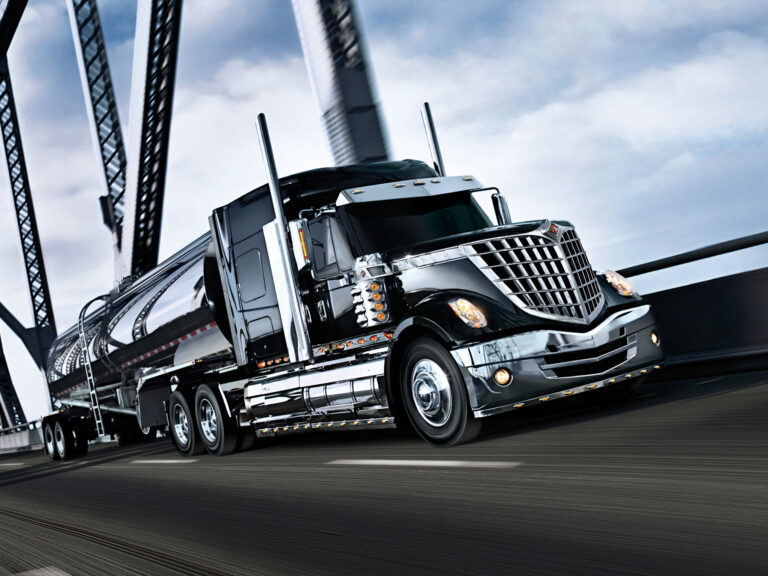Semi Trucks For Sale In Illinois: Your Comprehensive Guide to Navigating the Market
Semi Trucks For Sale In Illinois: Your Comprehensive Guide to Navigating the Market cars.truckstrend.com
Illinois, often dubbed the "Crossroads of America," holds a pivotal position in the nation’s logistics and transportation network. With its central location, robust interstate system, and status as a major agricultural and industrial hub, it’s no surprise that the demand for commercial vehicles, particularly semi-trucks, is consistently high. For individuals and businesses looking to enter or expand their operations in the trucking industry, understanding the landscape of semi trucks for sale in Illinois is crucial.
This comprehensive guide will serve as your detailed resource, exploring everything from why Illinois is an ideal place to purchase a semi-truck to the specific types of vehicles available, where to find them, critical considerations before buying, and practical advice to ensure a successful acquisition. Whether you’re a seasoned owner-operator, a growing fleet manager, or a new entrepreneur venturing into freight, this article aims to provide actionable insights into the Illinois semi-truck market.
Semi Trucks For Sale In Illinois: Your Comprehensive Guide to Navigating the Market
Why Illinois is a Prime Location for Semi Truck Purchases
Illinois’ strategic geographic position makes it a natural magnet for trucking activity and, consequently, a robust market for semi trucks for sale. Here’s why:
- Geographic Advantage: Situated at the heart of the Midwest, Illinois serves as a critical nexus for East-West and North-South freight movement. Major interstates like I-80, I-55, I-70, I-90, and I-94 converge within the state, making it a central point for distribution and logistics.
- Logistics and Distribution Hub: Chicago, in particular, is one of the largest intermodal hubs in the world, facilitating vast amounts of rail-to-truck and truck-to-truck transfers. Beyond Chicago, cities like Rockford, Peoria, and the Metro East area (near St. Louis) also boast significant logistics infrastructure. This high volume of freight movement means a constant turnover of vehicles and a healthy supply of both new and used trucks.
- Diverse Industrial Base: Illinois’ economy is diverse, encompassing manufacturing, agriculture, energy, and retail. Each sector generates substantial freight, ensuring a consistent demand for trucking services and, by extension, a dynamic market for semi-truck sales.
- Access to Inventory: Due to the sheer volume of trucking operations, Illinois hosts a large number of authorized dealerships for major manufacturers (Freightliner, Kenworth, Peterbilt, Volvo, Mack, International), independent used truck dealers, large fleet operations selling off older units, and numerous auction houses. This wide array of sellers ensures a diverse inventory to choose from.
- Strong Support Infrastructure: The state has a well-developed network of truck stops, repair shops, parts suppliers, and commercial vehicle financing institutions, making it easier for truck owners to maintain and operate their vehicles effectively after purchase.

Types of Semi Trucks Available in Illinois
The market for semi trucks for sale in Illinois offers a wide variety of configurations and applications to suit diverse business needs. Understanding these categories is the first step in narrowing down your search:
- By Configuration:

- Day Cabs: These trucks have no sleeper berth and are ideal for local or regional hauls where the driver returns home daily. They are typically lighter, more maneuverable, and often less expensive.
- Sleeper Cabs: Designed for long-haul operations, these trucks feature an integrated sleeping compartment behind the cab. They come in various sizes (mid-roof, high-roof, custom sleepers) offering different levels of comfort and amenities for drivers on extended trips.
- By Application/Trailer Type: While the semi-truck (tractor) is the power unit, its utility depends on the trailer it pulls. Common applications include:

- Dry Van: General freight, non-perishable goods.
- Reefer (Refrigerated): Perishable goods requiring temperature control.
- Flatbed: Oversized, irregularly shaped, or construction materials.
- Tanker: Liquids or gases.
- Dump Truck: Bulk materials like sand, gravel, or dirt.
- Car Hauler: Transporting vehicles.
- By Engine/Transmission: Trucks are available with manual (10-speed, 13-speed, 18-speed) or automatic/automated manual transmissions (AMTs). Engine sizes and horsepower (HP) ratings vary significantly, impacting fuel efficiency, pulling power, and suitability for different terrains.
- By Brand: Popular manufacturers widely available in Illinois include Freightliner, Kenworth, Peterbilt, Volvo, Mack, International, and Western Star. Each brand has its reputation for reliability, comfort, and service network.
- New vs. Used:
- New Trucks: Offer the latest technology, full manufacturer warranties, and often better fuel efficiency. They come at a premium price.
- Used Trucks: Provide a more budget-friendly entry point. They can be a great value but require more thorough inspection and due diligence. The Illinois market has a vast selection of well-maintained used trucks from various fleet liquidations and owner-operators upgrading their equipment.
Where to Find Semi Trucks for Sale in Illinois
Finding the right semi-truck involves knowing where to look. The Illinois market offers several avenues:
-
Authorized Dealerships: These are typically the primary source for new trucks and certified pre-owned vehicles.
- Pros: Access to warranties, manufacturer-backed financing, in-house service departments, and the latest models.
- Cons: Higher prices compared to other options.
- Examples: Rush Truck Centers, Love’s Truck Stops (for new and used), and numerous independent brand-specific dealerships across the state (e.g., Peterbilt of Illinois, Volvo Trucks of Chicago).
-
Independent Used Truck Dealers: These dealers specialize in pre-owned commercial vehicles, often offering a wider variety of makes, models, and price points.
- Pros: Competitive pricing, diverse inventory, potential for more flexible financing options.
- Cons: Warranties may be limited or aftermarket, inventory quality can vary, requiring careful inspection.
-
Online Marketplaces and Aggregators: These platforms allow you to search vast inventories from various sellers across Illinois and beyond.
- Pros: Wide reach, convenient filtering options (make, model, year, price, mileage), detailed listings with photos.
- Examples: TruckPaper.com, CommercialTruckTrader.com, MyLittleSalesman.com, eBay Motors, and even local Facebook Marketplace groups.
-
Auctions: Public, police, repossession, or government surplus auctions can offer significant deals.
- Pros: Potential for below-market prices.
- Cons: Trucks are typically sold "as-is," with limited opportunities for detailed inspection. Bidding can be competitive. Research the auction house’s reputation and policies.
-
Private Sellers: Buying directly from an owner-operator or small fleet can sometimes yield a good deal without dealer markups.
- Pros: Direct negotiation, potentially more detailed history from the owner.
- Cons: Requires more due diligence on your part (inspection, paperwork), no financing assistance, limited recourse if issues arise post-sale.
-
Fleet Sales: Larger trucking companies often sell off parts of their fleet on a regular basis to upgrade. These trucks are usually well-maintained with detailed service records. You might find these listed on specialized fleet sales websites or through brokers.
Key Considerations Before Buying a Semi Truck in Illinois
Purchasing a semi-truck is a significant investment. Careful consideration of these factors will help you make an informed decision:
-
Budget and Financing:
- Total Cost: Beyond the purchase price, factor in down payment, interest rates, insurance, registration, licensing (IRP/IFTA), and an initial maintenance fund.
- Financing: Explore options from traditional banks, credit unions, and specialized commercial truck lenders. Your credit score, business history, and the age/condition of the truck will influence loan terms.
-
Intended Use and Specifications:
- Type of Freight: Will you haul dry goods, refrigerated freight, oversized loads, or something else? This dictates the trailer type and, consequently, the truck’s specifications (engine power, axle configuration, etc.).
- Routes: Local, regional, or long-haul? Day cabs are for local, sleepers for long-haul. Consider terrain – mountainous routes require more power.
- Gross Vehicle Weight Rating (GVWR) & Gross Combination Weight Rating (GCWR): Ensure the truck’s ratings align with the weight of the loads you intend to haul, complying with federal and state regulations.
-
Condition and Pre-Purchase Inspection (PPI):
- For Used Trucks, this is paramount. Always arrange for a thorough Pre-Purchase Inspection by a certified, independent mechanic specializing in heavy-duty trucks. They can identify potential issues with the engine, transmission, differential, brakes, suspension, tires, frame, electrical system, and more.
- Maintenance Records: Request detailed service and maintenance history. A well-documented history indicates responsible ownership.
- DOT Compliance: Ensure the truck is in compliance with Department of Transportation (DOT) regulations. Check lights, brakes, tires, and safety equipment.
-
Mileage and Engine Hours: These are crucial indicators of wear and tear, especially for used trucks. While high mileage isn’t always a deal-breaker if the truck has been well-maintained, it often correlates with more wear on components.
-
Emissions Regulations: Illinois adheres to federal EPA emissions standards. Ensure the truck, especially if older, has a functioning Diesel Particulate Filter (DPF) and Selective Catalytic Reduction (SCR) system (requiring Diesel Exhaust Fluid – DEF) if applicable, to avoid compliance issues and costly repairs.
-
Warranty: New trucks come with manufacturer warranties. For used trucks, inquire about any remaining manufacturer warranty, dealer warranties, or options for purchasing extended aftermarket warranties.
-
Resale Value: Certain truck brands and configurations tend to hold their value better than others. Consider this if you plan to upgrade in the future.
The Buying Process: Steps to Take
Once you’ve considered the key factors, here’s a step-by-step guide to acquiring your semi-truck in Illinois:
- Define Your Needs: Be specific about the type of truck, budget, features, and desired condition (new/used).
- Research and Shortlist: Use online platforms, visit dealerships, and attend auctions to identify potential trucks that meet your criteria.
- Initial Contact and Information Gathering: Reach out to sellers, ask detailed questions about the truck’s history, specifications, and maintenance. Request photos and VIN.
- On-Site Inspection (Preliminary): If the truck seems promising, arrange a visit to visually inspect it. Look for obvious signs of damage, rust, fluid leaks, tire wear, and general condition of the interior.
- Pre-Purchase Inspection (PPI): If the preliminary inspection goes well, schedule a professional PPI with an independent mechanic. This is your best defense against buying a problematic truck.
- Negotiation: Based on the PPI results and your market research, negotiate the price. Don’t be afraid to walk away if the terms aren’t right or if significant issues are uncovered.
- Secure Financing: Once a price is agreed upon, finalize your financing arrangements. Have all necessary documentation ready (business plan, financial statements, personal credit history).
- Paperwork and Title Transfer: Ensure you receive a clear title, bill of sale, and any other necessary legal documents. Verify the VIN on the documents matches the truck. In Illinois, you’ll register the truck with the Secretary of State’s office.
- Insurance: Obtain commercial truck insurance before taking possession. This is a legal requirement and protects your investment.
- Registration and Licensing: Register your truck with the Illinois Secretary of State. You will also need to comply with International Registration Plan (IRP) for apportioned plates and International Fuel Tax Agreement (IFTA) for fuel tax reporting if you plan to operate across state lines.
Tips for a Successful Purchase
- Don’t Rush: Take your time. The right truck will come along. Rushing can lead to costly mistakes.
- Get Everything in Writing: All agreements, warranties, and promises should be documented in the sales contract.
- Verify VIN and Cross-reference the VIN on the truck with the VIN on the title and any other documents to prevent fraud.
- Understand Total Cost of Ownership (TCO): Beyond the purchase price, consider fuel, maintenance, tires, insurance, tolls, and regulatory fees.
- Network: Talk to other owner-operators or fleet managers in Illinois. They can offer valuable insights and recommendations.
- Test Drive: Always test drive the truck, ideally under conditions similar to how you’ll operate it (e.g., with a loaded trailer if possible). Listen for unusual noises, check braking, steering, and transmission shifts.
Challenges and Solutions
- Challenge: Finding the "Right" Truck in a Sea of Options.
- Solution: Be specific with your search criteria. Utilize online filters, visit multiple dealerships, and communicate clearly with sellers about your exact needs.
- Challenge: Hidden Problems in Used Trucks.
- Solution: The Pre-Purchase Inspection (PPI) is your most powerful tool. Also, ask for comprehensive service records, check for signs of rushed repairs (e.g., fresh paint over rust, mismatched tires), and use VIN lookup services to check for accident history.
- Challenge: Securing Favorable Financing.
- Solution: Have a solid business plan, a good credit score (or a co-signer), and explore various lenders. Don’t just settle for the first offer. Build relationships with commercial lenders.
- Challenge: Market Fluctuations Affecting Prices.
- Solution: Stay informed about current market trends. Prices can fluctuate based on supply, demand, economic conditions, and even fuel prices. Be prepared to act when a good deal arises but don’t panic buy.
Semi Trucks For Sale In Illinois: Estimated Price Ranges
The price of a semi-truck in Illinois, as elsewhere, varies wildly based on numerous factors: new vs. used, make, model, year, mileage, condition, engine type, transmission, sleeper size, and additional features (e.g., APU, inverter, custom interior). The table below provides estimated ranges for common categories of semi-trucks you might find for sale in Illinois. These are illustrative and subject to change based on market dynamics.
| Category/Type | Year Range (Used) | Mileage Range (Used) | Estimated Price Range (USD) | Key Factors Affecting Price |
|---|---|---|---|---|
| New Day Cab | 2023-2024 | N/A | $120,000 – $180,000+ | Brand reputation, engine size/HP, transmission type, trim level, optional features. |
| New Sleeper Cab | 2023-2024 | N/A | $150,000 – $250,000+ | Brand, sleeper size (e.g., 72" vs. 80"+), luxury features, engine specs, custom options. |
| Used Day Cab (Recent) | 2019-2022 | 250,000 – 500,000 miles | $60,000 – $100,000 | Overall condition, maintenance history, engine hours, brand desirability, remaining warranty. |
| Used Day Cab (Older) | 2015-2018 | 500,000 – 800,000 miles | $35,000 – $60,000 | Mileage, major component condition (engine, transmission), recent repairs, tire wear, body condition. |
| Used Sleeper Cab (Recent) | 2019-2022 | 300,000 – 600,000 miles | $80,000 – $150,000 | Sleeper amenities (APU, inverter, fridge), brand, condition, interior cleanliness, accident history. |
| Used Sleeper Cab (Older) | 2015-2018 | 600,000 – 1,000,000+ miles | $45,000 – $80,000 | High mileage (potential for major overhaul soon), service records, cosmetic condition, signs of wear. |
| Bargain/High Mileage | 2010-2014 | 800,000 – 1,200,000+ miles | $20,000 – $40,000 | "As-is" sale, may require significant mechanical work, ideal for parts, very short-term use, or a project. |
| Specialized Trucks | Varies | Varies | $70,000 – $200,000+ | Type of specialized equipment (e.g., heavy-haul, dump, reefer unit condition), custom modifications, market demand for that niche. |
Disclaimer: These are general estimates. Actual prices for semi trucks for sale in Illinois can be higher or lower depending on the exact specifications, market demand at the time of purchase, individual seller, and negotiation. Always conduct your own research and get a professional appraisal if unsure.
Frequently Asked Questions (FAQ) About Semi Trucks For Sale In Illinois
Q1: What is the average lifespan of a semi-truck?
A1: With proper maintenance, a semi-truck can last for 1 million to 1.5 million miles or more. The engine and major components often undergo rebuilds or replacements during this lifespan.
Q2: Do I need a CDL to buy a semi-truck?
A2: No, you do not need a Commercial Driver’s License (CDL) to purchase a semi-truck. However, you absolutely need a valid CDL to legally operate it on public roads.
Q3: What are the main ongoing costs associated with owning a semi-truck in Illinois?
A3: Beyond the purchase price, ongoing costs include fuel, insurance (commercial liability, cargo, physical damage), maintenance and repairs, tires, tolls, IRP (apportioned plates), IFTA (fuel tax reporting), annual inspections, and parking/storage.
Q4: How important is a pre-purchase inspection (PPI) for a used semi-truck?
A4: A PPI is critically important. It can uncover hidden mechanical issues, structural damage, or maintenance neglect that might not be obvious to an untrained eye, potentially saving you thousands in post-purchase repairs.
Q5: Can I get financing for a used semi-truck in Illinois?
A5: Yes, financing is widely available for used semi-trucks. Lenders specializing in commercial vehicles offer various loan products. Factors like the truck’s age, mileage, your credit score, and business history will influence interest rates and terms.
Q6: Are there specific Illinois regulations I should be aware of when buying a semi-truck?
A6: Yes, beyond federal DOT regulations, Illinois has its own requirements. You’ll need to register your truck with the Illinois Secretary of State. If operating across state lines, you’ll need IRP (International Registration Plan) for apportioned plates and IFTA (International Fuel Tax Agreement) for fuel tax reporting. Illinois also adheres to federal emissions standards, so ensure the truck’s emissions systems are compliant.
Q7: Is it better to buy from a dealership or a private seller?
A7: Both have pros and cons. Dealerships often offer warranties, financing assistance, and a more structured buying process, but typically at a higher price. Private sellers might offer better deals but require more personal due diligence, as "as-is" sales are common, and financing or warranty options are usually absent. Your comfort level with risk and your mechanical knowledge should guide this decision.
Conclusion
The market for semi trucks for sale in Illinois is as vast and dynamic as the state’s role in the nation’s transportation industry. With its strategic location, robust logistics infrastructure, and diverse inventory, Illinois offers excellent opportunities for those seeking to acquire a commercial vehicle.
By approaching the purchase with a clear understanding of your needs, diligent research, thorough inspections, and a commitment to understanding the full scope of costs and regulations, you can navigate this market successfully. Whether you opt for a brand-new rig or a dependable used workhorse, a well-informed decision will ensure your investment in a semi-truck in Illinois propels your trucking endeavors forward efficiently and profitably.






